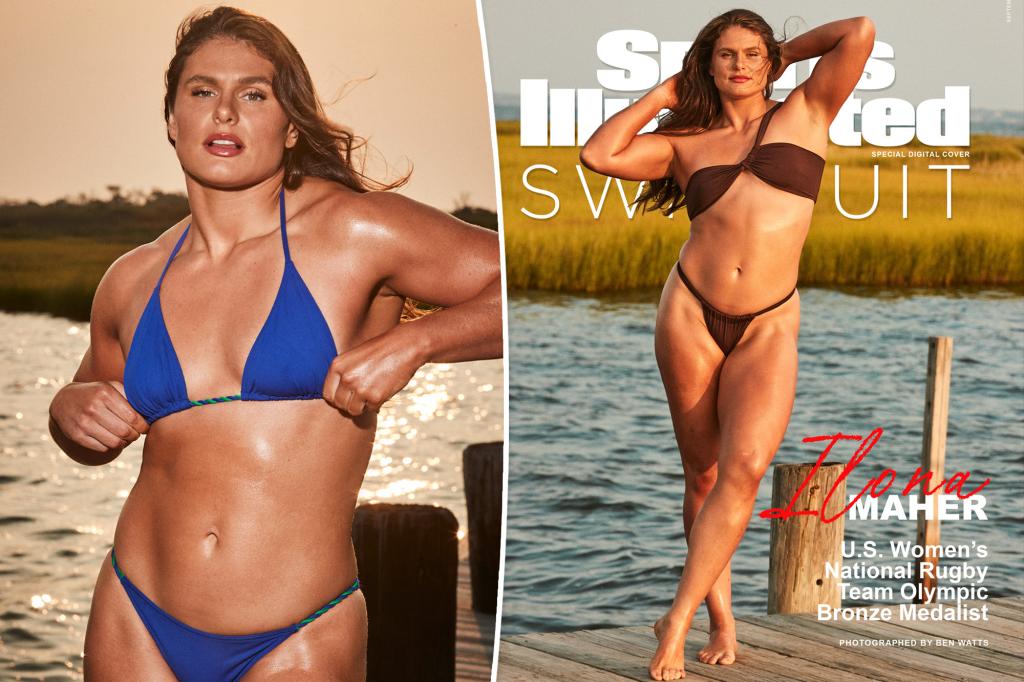Rugby player Ilona Maher made headlines during the 2024 Paris Olympics when she led the U.S. women’s team to its first bronze finish at the games. To celebrate her success, she graced the cover of Sports Illustrated’s September digital issue. The 28-year-old Olympian posed in an asymmetrical brown Myra Swim top and matching Brazilian-cut bottom on a dock in Belport, NY, with the photos shot by Ben Watts.
The magazine captioned the cover, highlighting Maher’s personal motto, #beastbeautybrains, and praised her for breaking stereotypes of female athletes. Throughout the shoot, Maher showcased her toned figure in various bikinis and one-pieces, with one bikini paying homage to her bronze medalist status at the Olympics. Maher received support from retired NFL star Jason Kelce during the games, and she wore a metallic Monday Swimwear top and bottom in the same hue as her Olympic medal for part of the shoot.
In her interview with SI Swimsuit, Maher talked about how she was labeled masculine growing up but never felt that way. She credited sports with helping her maintain a positive body image, stating that she wouldn’t be able to do what she does if her cellulite fell within a certain range. Fans praised Maher for showcasing beauty and strength simultaneously, with many expressing their wish for a role model like her when they were teenagers. The gymnast Aly Raisman and model Alix Earle also congratulated Maher on her stunning cover.
Maher emphasized how rugby has given her confidence and shown her the capabilities of her body beyond being objectified. She noted that the sport has helped her realize that her body is not just meant to be looked at but is a tool for strength and capability. Maher’s stunning cover on Sports Illustrated served as a powerful message to young girls about embracing their strength and beauty, regardless of any preconceived notions about femininity in sports. The cover and accompanying shoot have been widely praised for championing Maher’s achievements, both on the field and as a model breaking stereotypes in the sports industry.


